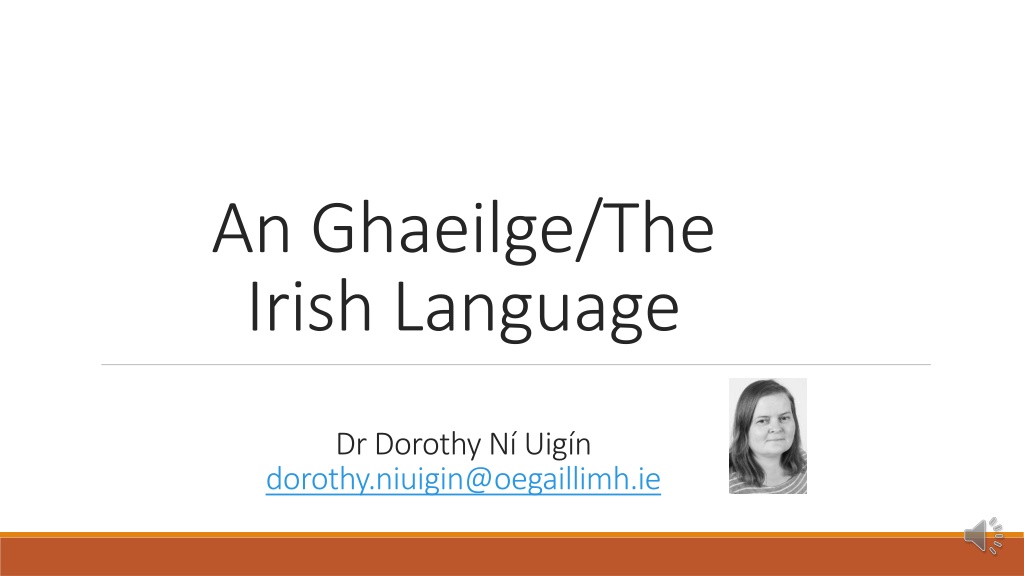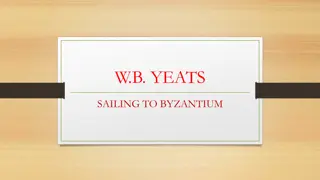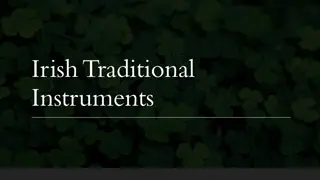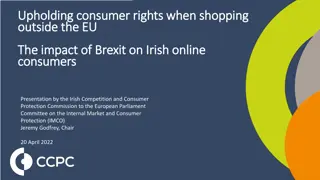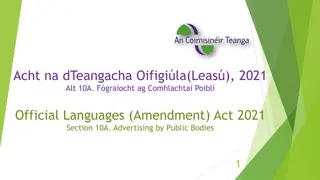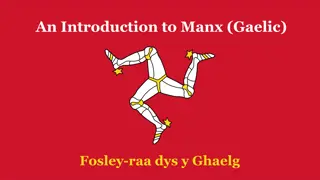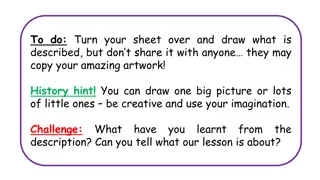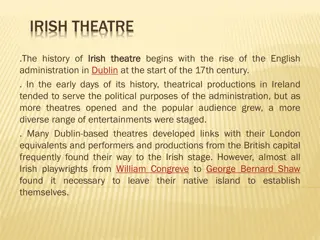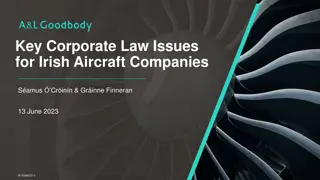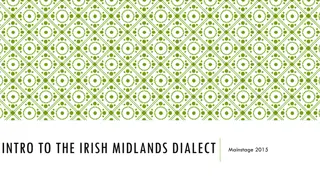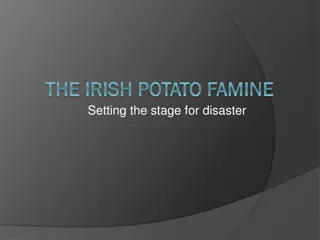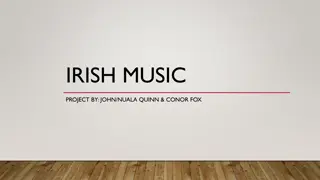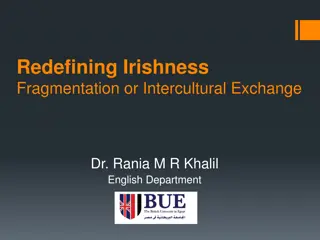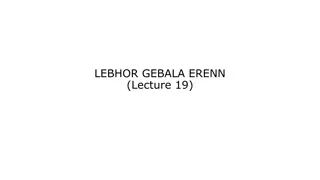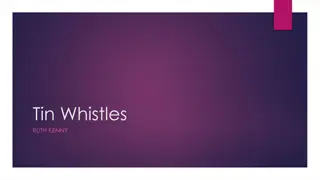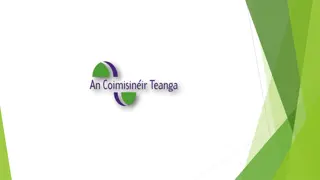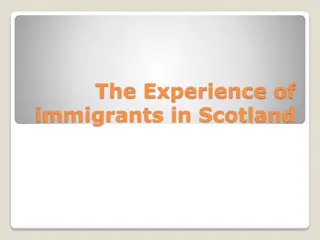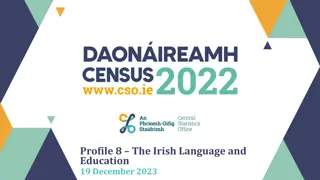Exploring the Richness of the Irish Language through History and Education
Discover the intriguing journey of the Irish language, from its ancient Celtic origins to its modern-day status. Explore its historical context, influences from Latin and other cultures, current status in Ireland, and available Irish language classes. Dive into the captivating world of An Ghaeilge and its profound impact on Irish society and culture.
Download Presentation

Please find below an Image/Link to download the presentation.
The content on the website is provided AS IS for your information and personal use only. It may not be sold, licensed, or shared on other websites without obtaining consent from the author. Download presentation by click this link. If you encounter any issues during the download, it is possible that the publisher has removed the file from their server.
E N D
Presentation Transcript
An Ghaeilge/The Irish Language Dr Dorothy N Uig n dorothy.niuigin@oegaillimh.ie
Historical Context Irish is a Celtic language and has been spoken in Ireland for over two thousand years. It is closely related to Scots Gaelic and the Manx language, and more distantly to the other Celtic languages Breton, Welsh and Cornish. It has a very impressive written history and is considered to have the oldest written vernacular literature in Europe.
Influences on the Language The Romans never came to Ireland, but Latin came with the arrival of Christianity and influenced the language. Viking Influences, 8-10th centuries. Anglo-Norman Influences, 12-17th centuries.
Current status of the language There are about 70,000 people living in the Irish-speaking areas in Ireland. Irish remains a compulsory subject in all schools in the state. Acht na dTeangacha Oifigi la/The Official Languages Act was passed in 2003. The Irish language received status as a working language in the European Parliament in 2007.
Ranganna Gaeilge/Irish classes Students have three choices as follows: A) Irish for Beginners 5 ECTS (European Credit Transfer and Accumulation System) One class, a total of 2 hours per week Course Code = GDT101.1 A fee of 30 will be payable on registration to cover course materials.
Provisional class times: Tuesday 10.00 a.m. 12.00 noon in Room 116 or Wednesday 11.00 a.m. 13.00 p.m. in Room 214 or Thursday 10.00 a.m. 12.00 noon in Room 104
B) Irish for Beginners 10 ECTS Two 2-hour classes, a total of 4 Hours per week Course Codes = GDT102.1 + GDT103.1
Provisional class times are as follows: Group 1 (10 ECT Group 1 (10 ECTs s) )- - Room 109, Block S Tuesday 10am 12.00 noon & Thursday 11am 1.00pm. OR Group 2 (10 ECTS Group 2 (10 ECTS) ) Room 109, Block S Tuesday 11.00am 13.00pm & Thursday 10.00am 12.00 noon A fee of 60 will be payable on registration to cover course materials. Room 109, Block S Room 109, Block S
C) Students Students staying for ECTS) ECTS) - - Module Codes: GA170 + GA171 Module Codes: GA170 + GA171 staying for two two semesters semesters can take Irish Irish for Beginners (15 for Beginners (15 This is a one year Irish-language course with certification consisting of one 3 hour class per week. This class will also focus on listening, speaking, reading and writing skills. Fee Fee & Registration & Registration A fee of 60.00 will be payable on registration.
Clr/Registration 5 and 10 ECTS 5 and 10 ECTS c courses September 2022 September 2022 ourses begin the week commencing begin the week commencing 12 12 The The 15 ECTS 15 ECTS course will not begin until the week course will not begin until the week commencing commencing 3 October 2022 3 October 2022 You must You must attend the attend the information ras ras na Gaeilge at 2pm on Monday, September na Gaeilge at 2pm on Monday, September 5, 2022. information and registration session in and registration session in 5, 2022. Remember Remember to also register to also register for your modules for your modules on Blackboard. on Blackboard.
Further Information Contact: peigi.nioibicin@oegaillimh.ie, Room 103 in ras na Gaeilge or dorothy.niuigin@oegaillimh.ie, Room 207 in ras na Gaeilge
